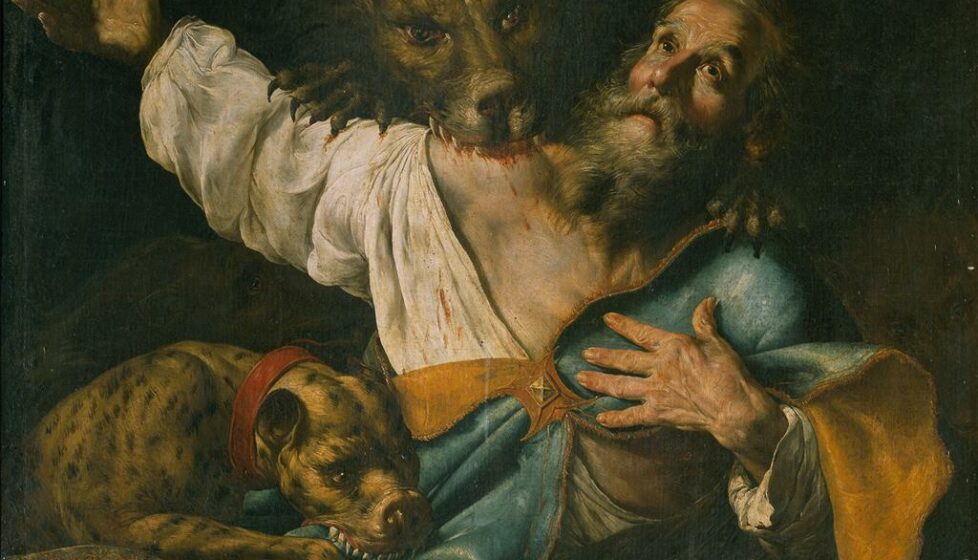Stories of Christian Martyrs: Patrick Hamilton and Henry Forest

No one was more surprised by the court’s sentence, or treated with greater cruelty, than the early Scottish martyr Patrick Hamilton. He was royalty, after all, related to the Stuart King James V. Through that relation he was educated in Paris, and knew Erasmus, one of Europe’s premier scholars.
Hamilton had been appointed abbot of Ferne the same year Martin
Luther posted his Ninety-Five Theses on the church door at Wittenberg.
Hamilton had met the German reformer and also knew Philip Melancthon, whose written works powered the Lutheran Reformation. Patrick was a gifted musician, composing and directing in his home cathedral. This promising young man, brilliant and connected, faltered at only one
life skill, so it seemed: a sense for danger.
In the summer of 1523, Hamilton returned from Europe to join the
faculty at St. Andrews University. Recently challenged on the continent
to reconsider the meaning of Christian faith, he took every opportunity
to teach and debate his recovery of biblical truth: God’s mercy in Christ
apart from indulgences and other contrived interventions. But the archbishop, James Beaton, was scrutinizing the young scholar from afar.
Utterly devoted to the papacy, the archbishop would make sure this vile
teaching of faith and grace at St. Andrews would not ruin the church.

Dispatching Hamilton was a quick decision and a subhumanly slow
process. In late autumn of 1527, just after Hamilton’s wedding, he was
invited to participate in a conference of learned church leaders who were
gathering, so it appeared, to debate the “new doctrines.” Hamilton responded without delay, anticipating a lively colloquy. Instead, Archbishop Beaton conducted a short theological examination and ordered Hamilton’s arrest. The next morning the young scholar was questioned by bishops on thirteen charges of heresy, found guilty, and condemned to die that afternoon. The sentence was to be quickly carried out lest his friends exploit the heretic’s royal connections and Hamilton be pardoned or acquitted. He had, of course, agreed to every charge. He very much
believed what he taught. He could not deny what he and all those around
him plainly knew.
Doubtless stunned by the quick turn of events, Hamilton nevertheless walked to the place of burning in a spirit of prayer. Once fixed to the stake, a bag of gunpowder was tied under each armpit and a pile of still green wood and kindling placed around him. The gunpowder burst into flames but did not explode; the wood burned but with insufficient heat to kill. So there Hamilton hanged, flames smoldering, but his blistered, burned body writhing. While more wood was gathered, he begged for an end to the misery. A full six hours he suffered in front of the crowd at St. Salvator’s College, who heard him cry amid the agony, “Lord Jesus, receive my spirit. How long will darkness overwhelm this land?”
Two years later, in 1529, a Benedictine monk, Henry Forest, began
to illustrate his sermons with the story of teacher Patrick Hamilton, a
martyr for the truth. Archbishop Beaton was no more inclined to Forest’s
perverse teaching than to Hamilton’s. Yet Beaton had an increasingly
uneasy parish to contend with. The faithful had seen uncommon courage
only too recently, and Beaton feared their reaction should he move too
openly against another.
Instead of confrontation, Beaton sent a friar to hear Forest’s confession, always a confidential matter between sinner, priest and God. But
in this case, the confessional was really a pretext for intelligence gathering, which Beaton quickly used to condemn his mark. Instead of the
stake, however, Beaton ordered Forest smothered in a cellar jail away
from the people, a private affair within the church.
As the Scottish Reformation grew, Hamilton and Forest were honored as early heroes, and the man most widely known for changing the
soul of Scotland, John Knox, took his place in their wake, preaching and
teaching the gospel that the abbot and the monk knew and died for.
This story is an excerpt from Foxe: Voices of the Martyrs. You can get your own copy free with any donation to The Voice of the Martyrs.

